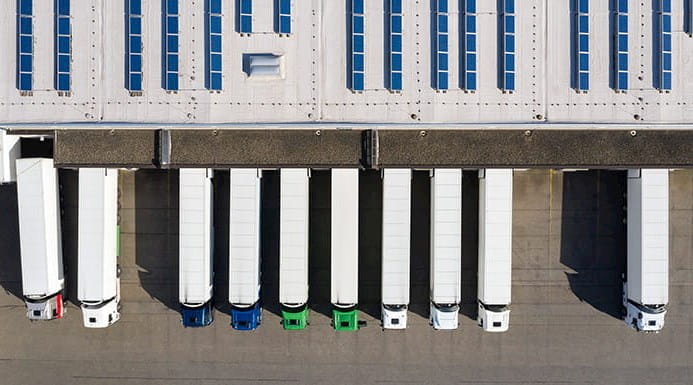Businesses are facing heavier costs and administrative burdens from delays and uncertainty around the UK’s post-Brexit border plans, according to a new report from the National Audit Office (NAO).
The report, published today (20 May), stresses that HMRC has yet to update its 2019 estimate, which puts the annual cost to UK business of competing UK and EU customs declarations at £7.5bn.
Key aspects of the UK’s post-Brexit border controls have yet to take shape. At present, the government plans to bring in most of its measures, including customs checks and the majority of so-called sanitary and phytosanitary (SPS) controls, plus further safety and security declaration (SSD) requirements, by October this year.
After October, it will still need to phase in SPS checks on goods arriving from Ireland, along with checks on live animals at border control posts and on medium-risk fruit and vegetables coming from the EU. However, the government has not yet specified when it expects to have the full regime in place.
Further pressures are stemming from SPS controls: vital, post-Brexit measures set up to manage risks around importing animal products, plants, plant products and food. The report highlights a Department for Environment, Food and Rural Affairs estimate putting the total annual cost to traders of SPS controls at £54m.
The NAO notes that the government has delayed the introduction of full controls a total of five times since the end of the EU-exit transition period on 31 December 2020. As a result, it is currently operating only a partial regime. The government estimates that, by the time it has the full system locked, its spending to implement the new arrangements and improve border management will hit at least £4.7bn.
It also estimates that, once the remaining controls are in place, traders will face annual costs of almost £470m.
Behind schedule
In a statement, the NAO says that repeated delays in introducing the controls, plus difficulties with forecasting the practical impacts, have resulted in government expenditure on infrastructure and staff that were ultimately not required.
Late policy announcements and uncertainty around the implementation plan have marred the ability of businesses and ports to prepare for the changes. Ongoing uncertainties and differences in port readiness also mean that, for a time, the new SPS controls may operate on an inconsistent and incomplete basis after introduction.
Turning to the technical bedrock of the new regime, the NAO stresses that improving the border’s functions depends upon the successful delivery of the government’s digital Single Trade Window (STW). However, the STW has fallen behind schedule and has since been replanned.
On a wider level, the UK’s 2025 Border Strategy lacks a clear timetable and an integrated, cross-government delivery plan. At present, individual departments are leading different parts of the implementation process. “Without strong mechanisms to report on delivery and hold departments to account, there is a significant risk that delivery of the strategy’s underlying programmes will fall well into the future,” the NAO states.
Unnecessary costs
NAO Comptroller and Auditor General, Gareth Davies, says: “The UK leaving the EU created a large-scale change in arrangements for the movement of goods across the border. However, more than three years after the end of the transition period, it is still not clear when full controls will be in place.”
Davies acknowledges the Border Strategy’s ambitious plans to use technology and data to facilitate trade, while managing risks. For the government to achieve its objectives, he says, strong delivery and accountability are required.
Meg Hillier MP, Chair of the Public Accounts Committee (PAC), criticises the lack of progress in the three years since the transition period ended. “As the PAC often sees across government, this could have been avoided with a clearer vision and better planning. Most controls will finally start operating this year. Government must now turn its attention to delivering its 2025 UK Border Strategy and improving the operation of the UK border.”
ICAEW’s Head of Business, Simon Gray, says: “The report echoes concerns raised by members of ICAEW’s Global Trade Community. The regulatory burden can be particularly onerous on smaller businesses, and delays in the arrival of goods have led to difficulties in meeting contractual obligations. ICAEW’s Manifesto highlighted uncertainty as a barrier to growth, with calls for more stability. A member told me this week that when it comes to trade, the committed are committed – but others see it as just too difficult, with regulatory complexity holding business back.”
Support trade in services
In its Manifesto, ICAEW sets out its recommendations for the UK government, including a vision of the trade of professional services.




